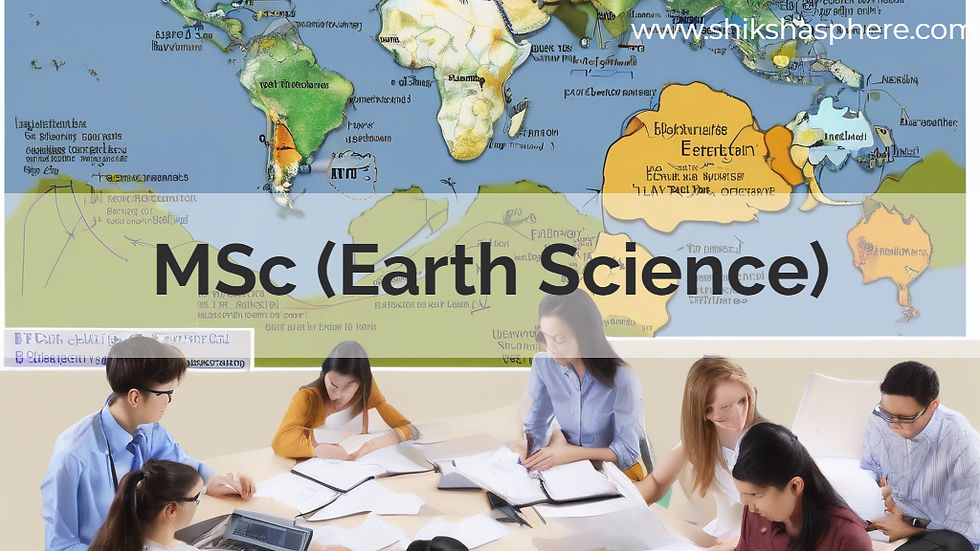
MSc (Earth Science)
Study earth systems and processes MSc Earth Science Know about course duration and entrance exams.
Course Overview
.jpg)
MSc (Earth Science)
MSc in Earth Science is a postgraduate degree program that focuses on the study of the Earth's physical structure, composition, processes, and history. It covers a wide range of topics including geology, geography, environmental science, climatology, and geophysics. Students pursuing this degree gain a deep understanding of the Earth's systems and processes, and are equipped with the knowledge and skills to address various environmental and geological challenges.
Earth Science
Earth Science is a branch of science that deals with the physical constitution of the Earth and its atmosphere. It includes the study of geology, meteorology, oceanography, and astronomy, among other disciplines, to understand the processes and systems that shape the Earth.
Eligibility Criteria for MSc in Earth Science in India
Educational Qualifications: Bachelor’s degree in Geology, Earth Sciences, Environmental Sciences, or related field.
Minimum Marks: Typically requires a minimum of 50-55% aggregate marks in the qualifying examination.
Entrance Exams: Common entrance exams like JAM (Joint Admission Test for M.Sc.), GATE (Graduate Aptitude Test in Engineering) or university-specific entrance exams may be required.
Merit-Based Selection: Admission may be based on the candidate's performance in the entrance exam and/or academic record.
Age Limit: Generally, there is no specific age limit for applying to MSc in Earth Science programs.
Nationality: Indian nationals as well as foreign nationals may be eligible to apply.
Specific Requirements: Some universities may have specific requirements such as relevant work experience, research papers, or recommendations.
Note: It is advisable to check the specific eligibility criteria of the university or institution where you plan to apply as requirements may vary.